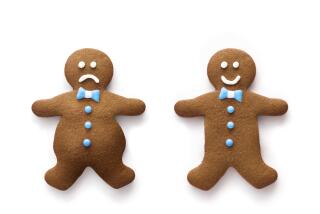Obesity rate will rise to 42% of the population based on contagion
- Share via
Obesity rates in the United States, which some health experts have suggested may be stabilizing at about 34%, will continue to rise until at least 42% of American adults are obese, according to a new model that projects the increase based on “social contagion.”
The social contagion hypothesis garnered widespread attention in 2007 when researchers from UC San Diego, documented that obesity can spread through a social network -- just like viruses spread -- because people “infect” each other with their perceptions of weight. That study was published in the New England Journal of Medicine, and subsequent research has confirmed the validity of the social contagion theory.
In a paper published Thursday in the journal PLoS Computational Biology, Harvard scientists applied a mathematical model of social contagion to 40 years of data from the Framingham Heart Study, a study that has followed more than 5,000 adult residents of Framingham, Mass., since 1948 to assess their heart health. Among the participants of that study, obesity increased from 14% in the 1970s to 30% in 2000 and continues to increase. Based on that data, the rapid upswing in obesity rates is due largely to social-network influence, said the authors of the new study. But, they noted, any subsequent rise in obesity rates will be slower than it has in the past. It may take another 40 years to reach that 42% obesity mark.
Non-social factors that lead to obesity -- such as access to unhealthy food and sedentary lifestyles -- are still much more important to the spread of obesity, the authors said. The social-contagion factor is a more recent factor.
Being surrounded by more obese people leads to increased social acceptability of obesity which leads to a higher rate of becoming obese, the authors wrote, “. . .creating a positive feedback mechanism and a continuously increasing obese fraction of the population. It has been suggested that changing social norms that stigmatized smoking may have led to its decline, and just the opposite may be true for obesity.”
A non-obese American has a 2% chance of becoming obese in any given year, the study found. The number rises by 0.4% with each obese social contact. So, if you have five obese friends, that doubles your risk of becoming obese. The study found that the rate of recovery from obesity -- about 4% per year -- has not changed.
Related: The ‘contagion’ of social networks.
Return to Booster Shots blog.





